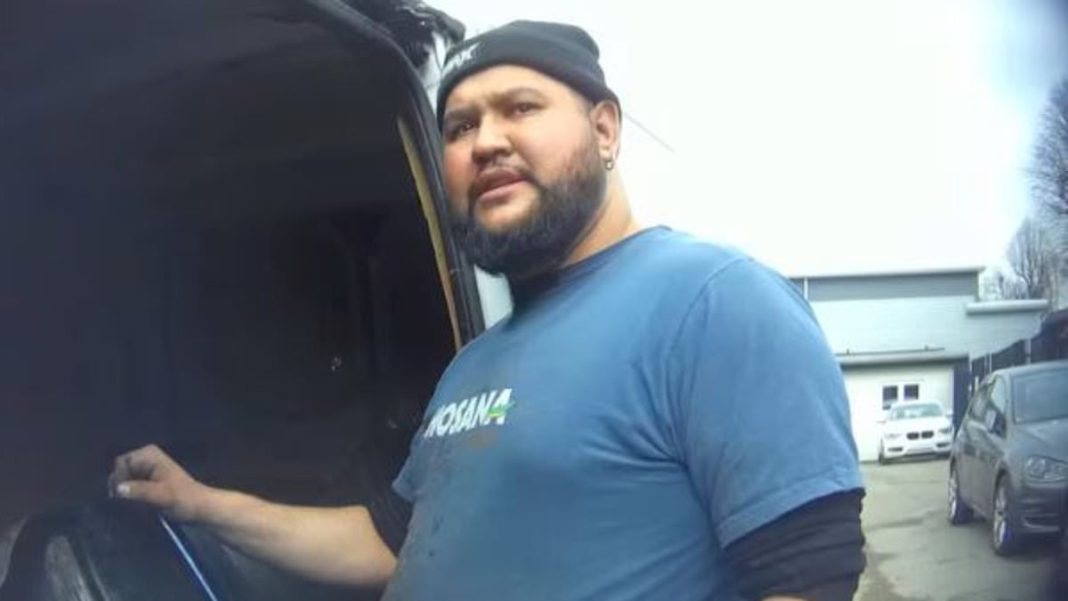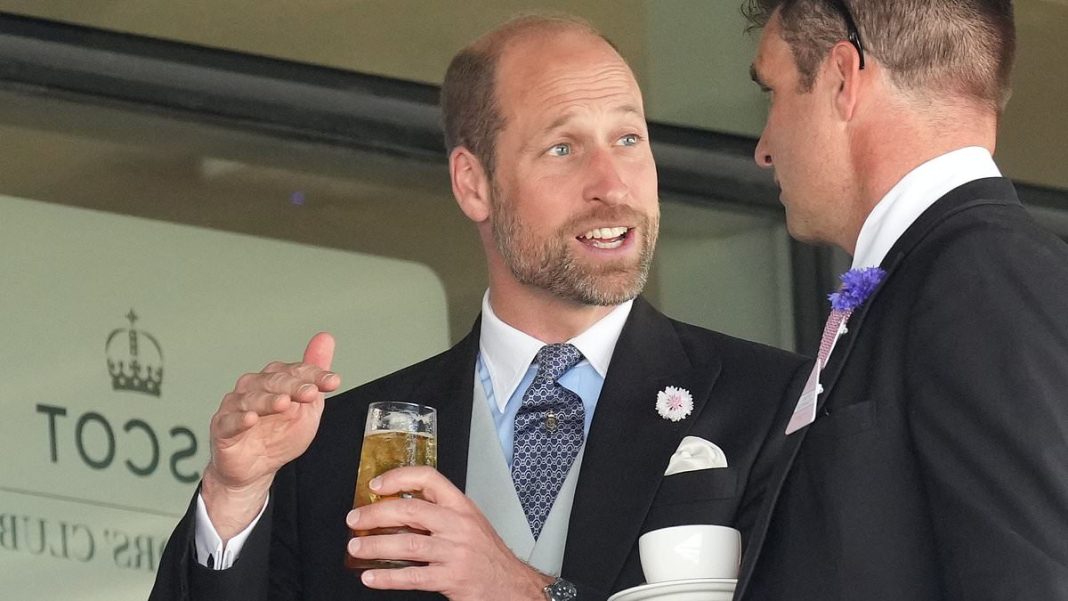Fugitives wanted for murder and child rape are being allowed to stay in Britain under human rights laws, it has emerged.
Marlon Martins Dos Santos and Nicolas Gomes De Brito have both successfully fought extradition to Brazil after claiming it would violate their rights under Article 3 of the European Convention on Human Rights (ECHR), which protects against torture and inhuman treatment.
In 2005, Dos Santos was c onvicted of killing a man in Brazil before having a further 14 years for repeatedly raping a five-year-old girl. By then he had fled to the UK, where a judge refused an extradition request.
In April, Dos Santos was convicted of possessing and distributing more than a thousand images of child abuse – including the most serious category.
Gomes De Brito fled to the UK in 2019 after allegedly ordering the murder of a rival gang member in Brazil. When his extradition was requested in 2022, he claimed he would be treated harshly in Brazilian prisons due to being gay and married to a man.
But when confronted by undercover reporters from ITV News, he said he had a wife and son who lived with him in the UK.
In the end, a judge decided that he could stay in Britain due to broader concerns about his treatment in prison unrelated to his sexuality.
The shocking cases were revealed today as Justice Secretary Shabana Mahmood gave a speech calling for the ECHR to be reformed to foreign criminals using it to block their deportation.
Killers, drug dealers and radical clerics are among those who have managed to resist being kicked out of the country by citing the treaty, which is embedded in UK law in the Human Rights Act.
Unable to be extradited, De Brito now has pre-settled status in the UK and showed undercover reporters his Home Office documentation, stating that he is free to work in any job, with no mention of the accusations against him in Brazil.
The lead investigator on his case in Brazil, Rodrigo Cavassoni, said the criminal poses a threat to Britain.
‘Nicolas’s extradition is important so he can defend himself against these charges and go before a jury,’ he said. ‘After the heinous crime, he needs to be tried by Brazilian authorities.’
Killer and paedophile Marlon Martins Dos Santos also remains in the UK.
Since 2009/10, Brazil has requested the extradition of 306 alleged criminals, but British authorities have only made four arrests.
Cases of criminals using the ECHR to dodge deportation and fuelled calls for Britain to withdraw.
But Labour has resisted these demands, with Shabana Mahmood today using a speech to the Council of Europe to call for the treaty to ‘evolve’.
‘If a foreign national commits a serious crime, they should expect to be removed from the country,’ she told the Council of Europe’s committee of ministers in Strasbourg.
‘The European convention on human rights is one of the great achievements of postwar politics. It has endured because it has evolved. Now, it must do so again.’
The Justice Secretary suggested reform of the treaty was necessary to restore ‘public confidence in the rule of law’.
‘There is a growing perception – sometimes mistaken, sometimes grounded in reality – that human rights are no longer a shield for the vulnerable, but a tool for criminals to avoid responsibility,’ she said.
‘That the law too often protects those who break the rules, rather than those who follow them.’
Labour recently announced a new bill containing measures designed to restrict the use of the ‘right to private and family life’ under Article 8 of the ECHR.
Ms Mahmood continued in her speech: ‘In the UK, we are restoring the balance we pledged at the birth of our Convention: liberty with responsibility, individual rights with the public interest. There must be consequences for breaking the rules.
‘Which is why we are clarifying how Convention rights – particularly Article 8 – operate in relation to immigration rules. The right to family life is fundamental.
‘But it has too often been used in ways that frustrate deportation, even where there are serious concerns about credibility, fairness, and risk to the public.
‘We’re bringing clarity back to the distinction between what the law protects and what policy permits. Prisoners claiming a right to socialise – under Article 8 – is not just a legal stretch. It damages the public perception of human rights altogether.’
Ms Mahmood’s intervention follows criticism of the ECHR from nine EU leaders, including Italian prime minister Giorgia Meloni and Donald Tusk, who was previously president of the European Council before becoming leader of Poland.
They said judges had been interpreting the treaty so widely that they were putting ‘too many limitations’ on ministers’ ability to deport ‘serious violent criminals’.
While Labour has called for reforms to the treaty, Kemi Badenoch has said she is ‘likely’ to support leaving it altogether.
In a speech earlier this month, the Tory leader bemoaned the effect of ‘lawfare’ in a number of areas – including on tackling illegal migration, deporting sex offenders, and supporting soldiers and military veterans.
Mrs Badenoch set out her party’s plans to establish a commission to investigate how to exit the ECHR, while the probe will also look at other international treaties.
She blasted the ECHR, which is enforced by Strasbourg-based judges, as being a ‘sword used to attack democratic decisions and common sense’.
‘The ECHR is now being used in ways never intended by its original authors,’ Mrs Badenoch said. ‘It should be a shield to protect. Instead, it’s become a sword.’
The Tory leader highlighted how members of grooming gangs had previously used Article 8 of the ECHR – the right to a family life – to fight their deportation from Britain.
Mrs Badenoch said she believed the UK ‘will likely need to leave’ the ECHR, but warned she ‘won’t commit to leaving without a clear plan to do so’.
‘We saw that holding a referendum without a plan to get Brexit done, led to years of wrangling and endless arguments until we got it sorted in 2019,’ she added. ‘We cannot go through that again.’
Criminals who have cited the ECHR in deportation appeals include a Turkish heroin dealer, who was allowed to stay in Britain to protect his ‘right to a family life’.
The 70-year-old man, who is believed to be one of the country’s biggest drug pushers, won his bid after claiming that he would be at risk of persecution if he returned to Turkey due to being an Alevi Kurd.
He is just one of a long list of serious criminals who have used the ECHR to fight deportation from Britain.
They range from convicted terrorists and ISIS supporters to a paedophile who abused a 13-year-old girl.
Also among those who have made use of the legislation is an Italian-born man who stabbed a headmaster to death outside the gates of his school, and a father of four who was accused of fatally shooting a man in the head in his native Albania.
It comes after Keir Starmer’s top legal adviser came under fire last month after apparently comparing those who support leaving the ECHR to Nazis.
Lord Hermer, the Attorney General, hit out at MPs and the media for being behind a ‘siren song’ pushing for Britain to drop international law.
In a lecture at the Royal United Services Institute, a defence and security think-tank, he said the Labour Government had a ‘policy of progressive realism’ that means it will never leave international conventions.
Numerous senior politicians on the Right have called for Britain to leave the convention after it stopped Rwanda deportation flights.
In response to ITV News’ investigation, a Home Office spokesperson said: ‘A Foreign nationals who commit crime should be in no doubt that we will do everything to make sure they are not free to roam Britain’s streets, including removing them from the UK at the earliest possible opportunity.
‘Since the election we’ve removed 4,436 foreign criminals, a 14% increase on the same period 12 months prior.
‘Extradition is a largely judicial process and it is for the courts to decide on matters related to Human Rights.’






